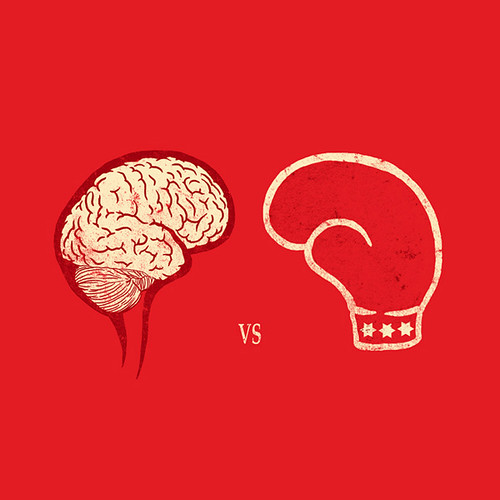
Humans are fallible: we don’t always act rationally. This isn’t exactly an enlightening statement. But we don’t usually extend this thinking to ourselves to realize when we are committing errors in reasoning. Nor do we take the time to examine where the mistakes in reasoning were made by others, rather we just conclude they are stupid.
This can range from huge self-identity beliefs like not believing in global warming. Or small things that might be irrational like paying for someone to wash your car, but not to clean your house.
It would be well worth our effort to improve our understanding of what underlies these errors of reasoning. We would make less mistakes ourselves, have more empathy for people with differing views, and have insight into their underlying beliefs that could potentially be used to persuade them.
I believe a limited cognitive reasoning vocabulary might be holding us back. Most cognitive biases make sense when you hear them explained. For example, “Bulverism – dismissing a claim on the basis of how the opponent got there, rather than a reasoned rebuttal” (source). The concept itself isn’t advanced, you get it. But if you don’t have a word or short phrase for that concept, it will hurt your ability to quickly identify it.
Somewhat Made Up Analogy Time
Let’s rewind a few thousand years to a time when our number system wasn’t yet invented. Before base 10 with independent digits in each place (1s place, 10s place, 100s place, etc.) with the concept of zero. Hard to fathom, but it really existed.
The number system largely relied on counting and they probably had a word for each individual number, not just digits. Since people have 20 fingers and toes, I would bet every language had a different word to count at least up to 20 (but 7 and 17 weren’t related words). And they probably didn’t really have much need for anything beyond that for a long time. Eventually things became more sophisticated, with an actual monetary system and even some division of labor beyond small tribes.
I’m sure they could understand large numbers just fine, but without much precision. Perhaps they had a way of estimating large numbers – each sheep is represented by a grain of rice, with my sheep numbering a fistful of rice. Imagine needing to do that inaccurate translation in your mind every time you encountered a number beyond 20. Would it slow you down? Would it be less accurate?
Armed with a new conceptual framework and vocabulary, you can improve your understanding. If someone says they have 450 sheep, I know exactly how much that is. Instantly and accurately.
Tying it Back to Cognitive Reasoning
If you have definitions in place for the various errors in reasoning, it will take less effort to identify when they happen, you will be more accurate, and have more success explaining it to others. Skeptics will be able to explain why they disagree. Gullibles will have some tools to realize when they are being led astray.
Even though we aren’t taught this, it is well worth our time to learn it on our own. Here are a couple links I am starting with:









